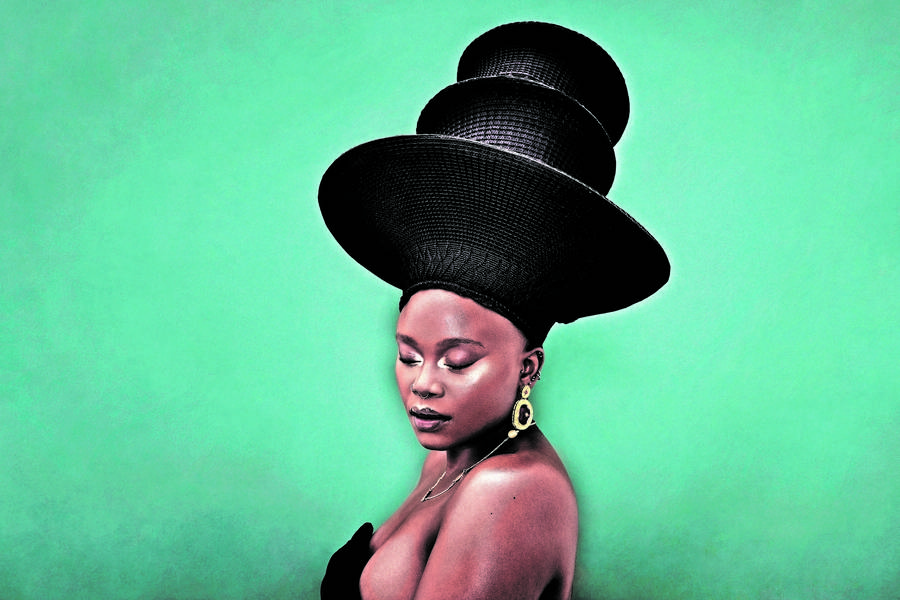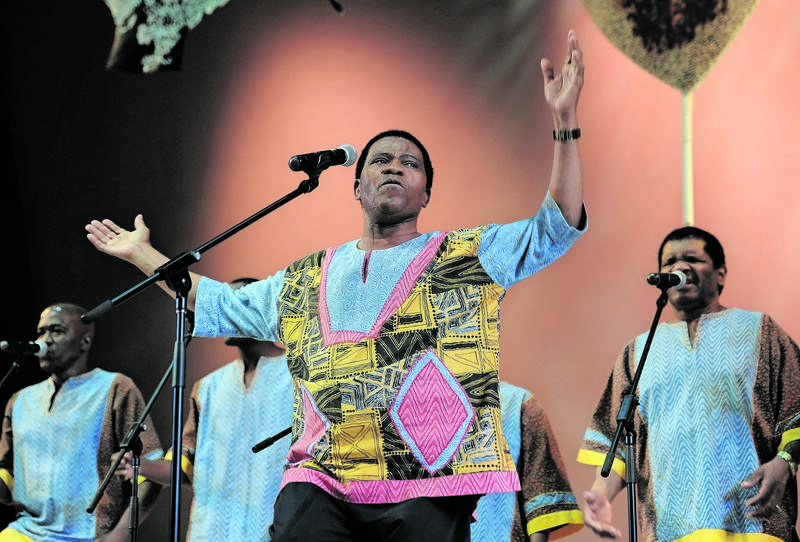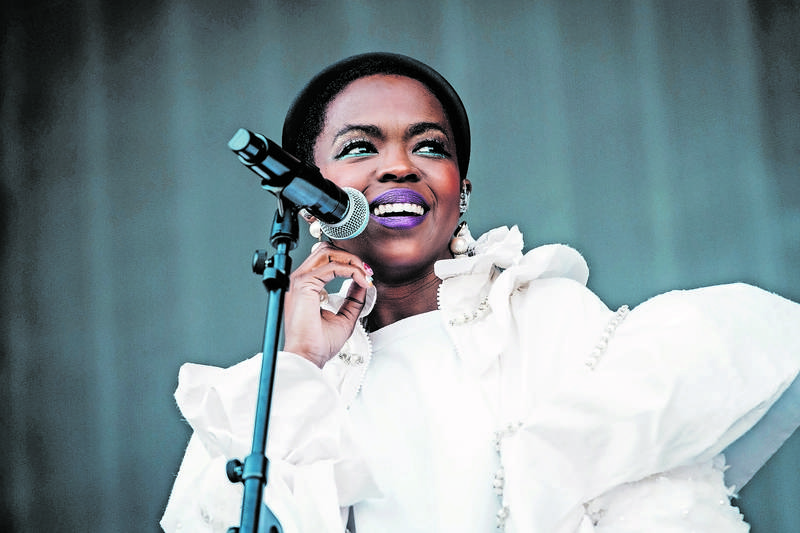
Amen: Local musician Zoë Modiga thinks while rankings can be valuable because they are aspirational, they are flawed.
For many fans outside the US, the Apple Music 100 Best Albums list already stumbles with its title. The ‘best’ excluding music from the rest of the world? There is not a single African album on this just-released ‘definitive list of the greatest albums ever made’. The Mail & Guardian asked some of our favourite musicians and critics what they thought of the list and to tell us which three South African albums they believed should be on such an inventory
Zoë Modiga – musician
“I’ve always found the hierarchy of people’s creative work particularly curious, partly because of how subjective the experience of taking in music is. Sharing in this conversation is especially challenging for this reason.
“The competitive spirit that is encouraged in the making of these kinds of lists can be valuable to the space through creating an air of aspiration and celebration.
“But I think it’s also fundamentally flawed because the ignorance of a kind of music and the geography of it can be a glaring reality, which is presumably the case with the Apple Top 100 album list.
“This is a predominantly American list and I’m (generously) surprised there’s no Ella Fitzgerald, Diana Ross — and that’s to name a few legends.
“Africa is missing in action, yet is overwhelmingly rich with musical works that should have been on the list. My first, and far from last, picks are globally, culturally impactful symbols of the vast African music story.”
Zoë Modiga’s top three:
Miriam Makeba – Zenizenabo: The Many Voices of Miriam Makeba’
Fondly known as Mama Africa, mam’ Miriam’s revolutionary, global legacy is aboundingly clear through this work. Boasting heartfelt songs from South Africa to Congo, West India to America, it is no wonder she was embraced as the mother of all.
Fela Kuti – The Best of the Black President
This compilation shares with us the essence of musical activist, the Father of Afrobeats, Kuti. Through spellbinding, fearless reflections of political, socio-economic commentary, the human condition, it is of the times and a timeless work.
Ladysmith Black Mambazo – Heavenly
The brainchild of founder bab’ Joseph Shabalala has seen the kings of South African a cappella impact audiences far and wide. This spirited album continues to deeply resonate with people and frames the beautiful picture of our cultural icons.
 Diamonds: Ladysmith Black Mambazo’s Heavenly would be on a top-album list compiled by Zoë Modiga. Photo: Jasper Juinen/Getty Images
Diamonds: Ladysmith Black Mambazo’s Heavenly would be on a top-album list compiled by Zoë Modiga. Photo: Jasper Juinen/Getty ImagesNakhane – musician
“Lists … pitting albums against albums is meaningless and a little silly. There are no criteria that could ever work to decide which album is better than another. That’s the beauty of art — the mystery, the thing that makes it personal.
“Having said that, if we know these lists are meaningless, they can be fun, for example, to see what other people are listening to and to learn about albums that were maybe outside of our radar.
“On the other hand, they can also show which cultures/genres/artists are dominant. In the case of this list, it was clear African music was not important to the curators. It is as if Africans have done nothing to add to this rich medium. It smacks of dangerous, revisionist, colonial history-making.”
Nakhane’s top three:
TKZee – Halloween
Impeccable production. In a genre of music that was (mostly) about partying, the attention to detail, to sound still stuns me. But, with all the seriousness to the fidelity of the sound and the very clever arrangements, it’s still an album that commands the body to move.
Busi Mhlongo – Urban Zulu
A classic that actually frightens me. Frightens me because there are only a few albums I’ve heard where you can hear that the lead artist is giving so much of themselves to the music.
What she had started in the album Babhemu with Twasa is extended and twisted into something knottier and stranger. Yes, it’s maskandi, but it constantly undermines the obvious.
Zim Ngqawana – Zimphonic Suites
While this album may come across as lofty, it’s actually very generous and welcoming. Perhaps it’s because I grew up singing some of the songs that Ngqawana rearranges. It’s ritualistic and yet not too mysterious; it’s complex but never haughty.
It’s the kind of album that takes a culturally accepted piece and pulls it apart into something for the present and future, begging for the progeny to add its own spin. It feels like home!
Bokani Dyer – musician
“There are some great albums in there but it did feel like they were trying to please everyone. Maybe it would have been good to have the albums in no order.”
Bokani’s top three:
Hugh Masekela – Hope
This live album was released around the time of South Africa’s first democratic elections in 1994 which contributes to the spirit. It also feels like a window into Bra Hugh’s journey in music from his roots to his time in America and collaborations with other African artists.
Moses Molelekwa – Genes and Spirits
This album is a finely crafted production masterpiece that was groundbreaking for its time. It made me believe in music-making that is boundless and that there are no rules.
Sibongile Khumalo – Live at the Market Theatre
Another beautiful live recording. The synergy of the band on this record is amazing. I discovered the great composition Caution, by Bra Caiphus Semenya, on this album. An album that doesn’t need a special occasion — I can play it anywhere, anytime.
Gwen Ansell – jazz critic and historian
“Countless South African jazz and African music albums belong in a world’s best 100. None are in Apple’s Top 100 list. It was, according to Apple, ‘crafted by Apple Music’s team of experts alongside a select group of artists, songwriters, producers and industry professionals […] fully independent of any streaming numbers on Apple Music’.
“That last bit is disingenuous. Numbers may not have guided the list, but the global monopoly music streaming system determines what most Western music listeners will even encounter. Read Cory Doctorow’s Chokepoint Capitalism to understand how repressively that works to erase distinctive identities, impose sonic ignorance and maximise profits. Music outside the West is often too ‘small’ to interest the behemoths, and its distribution systems are gloriously diverse: Brazilian baile funk, Sahel desert blues and amapiano all started their lives via cellphones.
“And what’s the point of a Top 100 under the patronage of a music seller, anyway? In the abstract, ranking Beyoncé against John Coltrane is as pointless as ranking apples against Fridays. The point is not about music but to drive consumption, like the algorithm-driven playlists so many platforms obligingly create for you, herding you towards more of the same. So, curmudgeonly as it may seem, I won’t be nominating any titles. Instead, I’m urging you to ignore Apple, research our music — from A(sher Gamedze) to Z(acks Nkosi) and shape your own tastes!”
Sean Jacobs – professor of international affairs at The New School and publisher of Africa is a Country
“Lists of this kind, despite claims of universality and expertise, often reveal inherent ethnocentrism and subjectivity. Objective measures are elusive; personal taste heavily influences rankings.
“Genre diversity is overlooked, and the ‘judges’ favour Euro-American and English artists, neglecting Asian or Latin American and, for us, African representation. Commercial interests also drive selections — Lauryn Hill over Michael Jackson, perhaps due to market trends.
“Nonetheless, because of the power of streaming services’ impact on artists’ livelihoods, which artists get on these kinds of lists is why we care.”
Sean’s top three:
Dollar Brand (Abdullah Ibrahim) – Mannenberg
This two-track 1974 album, which defines South Africa’s jazz sound, is fronted by the country’s most renowned musician. The title track Mannenberg embodies defiance and jubilation, hailed as the resistance’s second national anthem under apartheid. Personnel were icons too: Robbie Jansen, Basil Coetzee, Monty Weber, Paul Michaels and Morris Goldberg.
Brenda Fassie – Memeza
As Brenda, South Africa’s first proper pop star, once remarked, “Madonna is the Brenda of America.”
Released in 1998, this six-track album, with three remixes, features hits like Vuli Ndlela, Sum’ Bulala and the title track.
TKZee – Halloween
This 1998 release is an album of bangers (Magesh, Dlala Mapantsula, Sikelela and Palafala) and introspection (We Love This Place) that captures the energy and cheerfulness of the first decade of democracy, which was also my 20s.
Honourable mentions: Pata Pata by Miriam Makeba (1967), Yakhal’ Inkomo by Mankunku Quartet (1968), Home is Where the Music Is by Hugh Masekela (1972) and Urban Zulu by Busi Mhlongo (1999).
The Top 10 on Apple Music’s Best Albums list
 Top of the hill: Lauryn Hill was No 1. Photo: Mariano Regidor/Redferns
Top of the hill: Lauryn Hill was No 1. Photo: Mariano Regidor/Redferns1. Lauren Hill — The Miseducation of Lauryn Hill (1998)
2. Michael Jackson — Thriller (1982)
3. The Beatles — Abbey Road (1969)
4. Prince & The Revolution — Purple Rain (1984)
5. Frank Ocean — Blonde (2016)
6. Stevie Wonder — Songs in the Key of Life (1976)
7. Kendrick Lamar — good kid, m.A.A.d city (2012)
8. Amy Winehouse — Back to Black (2006)
9. Nirvana — Nevermind (1991)
10. Beyoncé — Lemonade (2016)
 (1).png)
 7 months ago
38
7 months ago
38


















